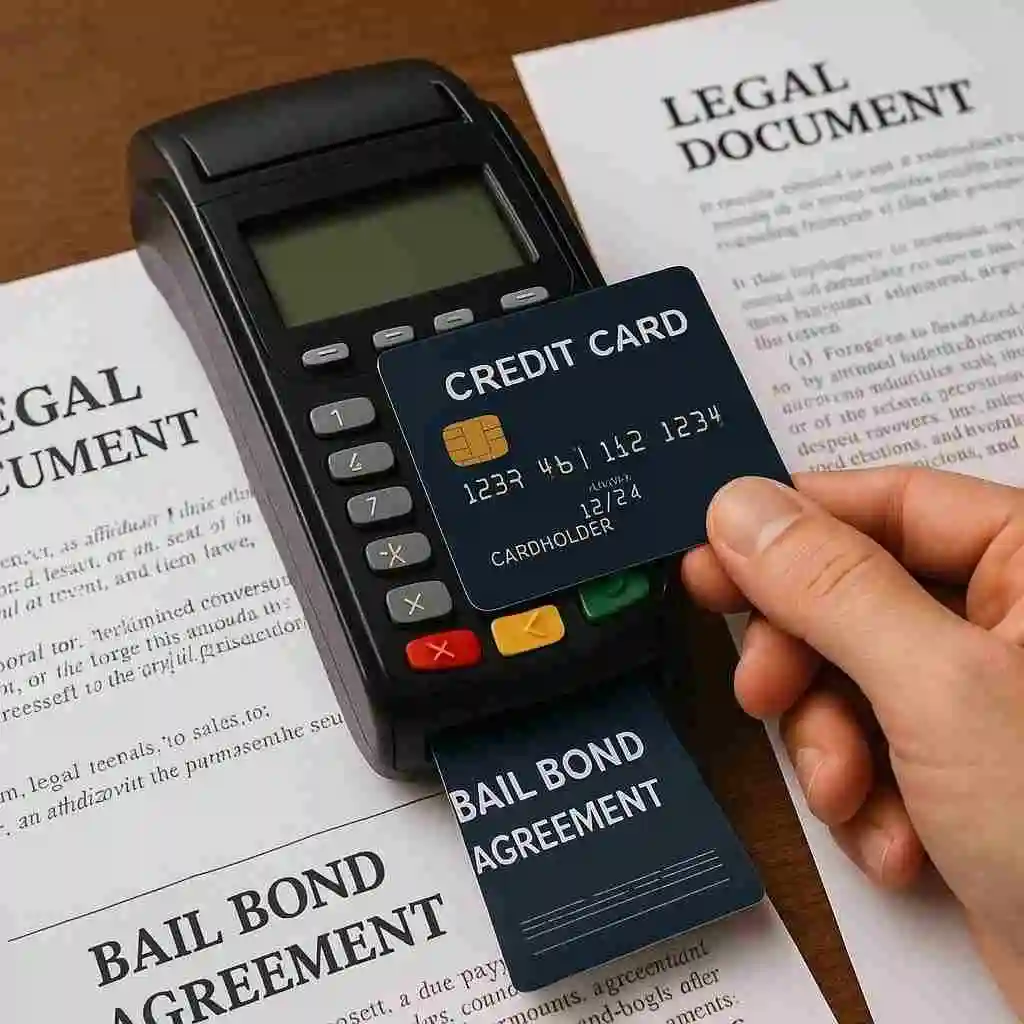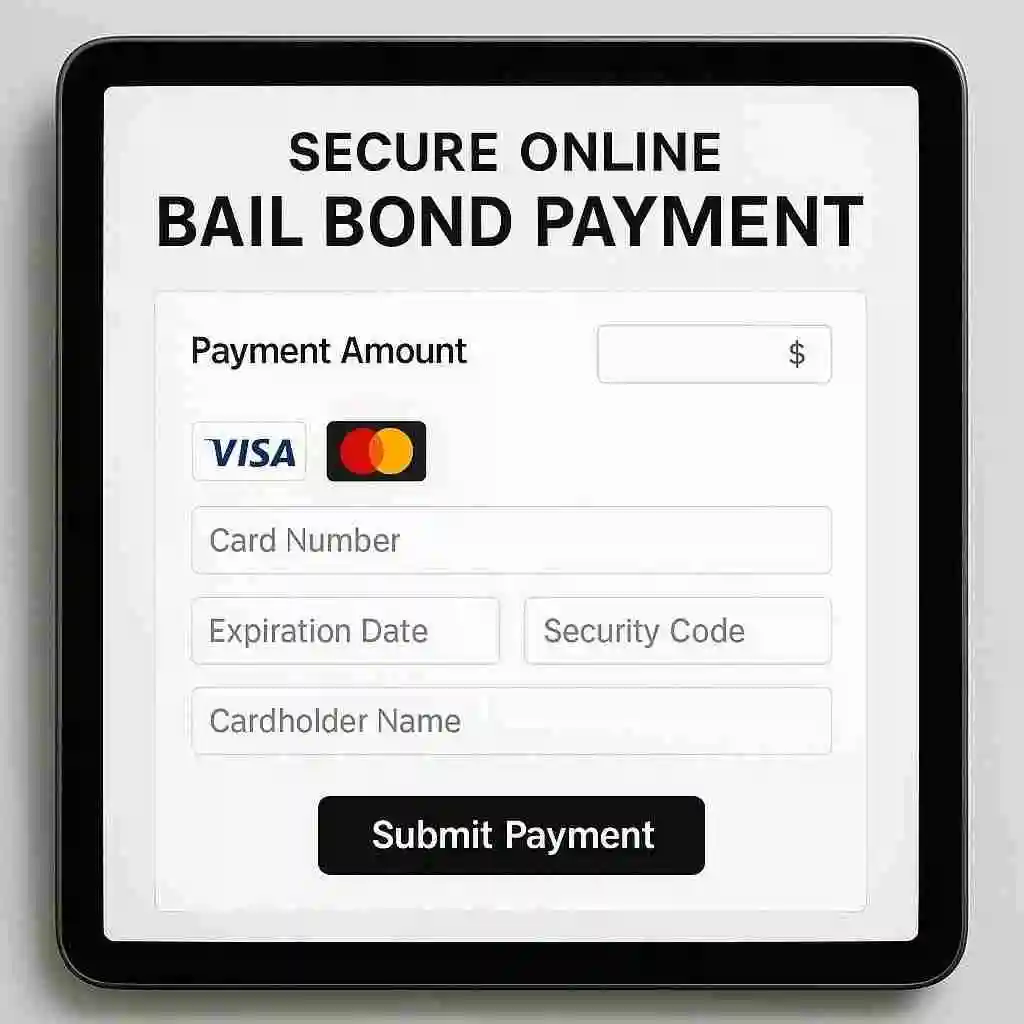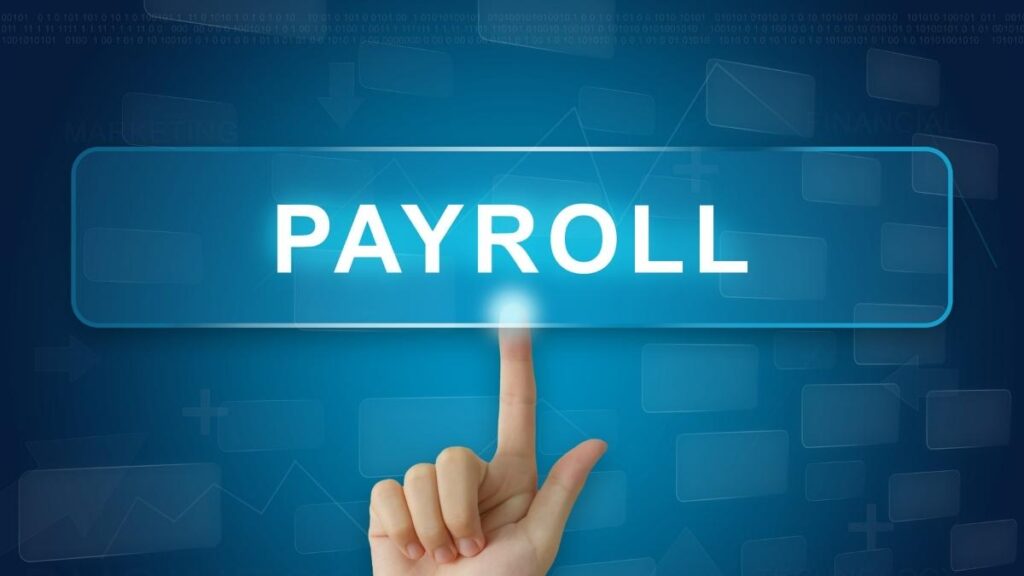
When a loved one is arrested, the situation can feel overwhelming. You’re worried, stressed, and racing against time to secure their release. One of the most pressing questions is how to pay for bail—especially if cash is tight. A common question people ask is, “Do bail bondsmen take credit cards?” The good news is that many modern bail bond companies do accept credit cards, but policies vary depending on the agency and state. In this guide, we’ll walk you through bail bond payment options, the pros and cons of using a credit card, and how the process works, so you can act quickly and confidently during an emergency.
Do Bail Bondsmen Take Credit Cards?
Yes, Many Do—But It Depends on the Bail Company
Most reputable bail bond companies across the U.S. accept credit cards as a convenient way to cover bail bond costs. Commonly accepted cards include Visa, Mastercard, and sometimes American Express or Discover. However, not every bail bondsman has the same credit card policy, so it’s critical to confirm with the agency upfront.
Some bail bond companies may:
- Charge a small processing fee (typically 2–5%) for credit card transactions.
- Limit credit card payments to specific amounts, especially for high bail bonds.
- Restrict certain card types due to processing agreements or equipment limitations.
Always ask about the bail bondsman’s credit card policy before moving forward to avoid surprises. Reputable agencies are transparent about fees and will explain their bail bond payment options clearly.

What You Can Pay With a Credit Card
When working with a bail bondsman, a credit card can typically cover:
- Bail bond premium: This is usually 10–15% of the total bail amount, as set by state regulations. For example, if bail is $10,000, the premium is $1,000–$1,500.
- Collateral deposits: In some cases, a bondsman may require collateral (like property or assets) to secure the bond. Some allow a portion of this to be paid via credit card.
- Administrative or service fees: Additional fees for paperwork or processing may also be charged to your card.
Using a credit card to pay for bail is often a fast and secure way to handle these costs, especially when you don’t have immediate access to cash.
Pros and Cons of Using a Credit Card for Bail
Paying bail with a credit card can be a lifesaver in an emergency, but it’s not without trade-offs. Here’s a breakdown of the advantages and potential downsides:
| Pros | Cons |
| Fast and convenient payment, often processed instantly | May incur high interest rates if you carry a balance |
| No need to carry or withdraw large amounts of cash | Some bail bond companies charge processing fees |
| Allows you to act quickly in an emergency | Credit card limits may be too low for high bail amounts |
| Secure transaction with receipt for your records | High credit utilization can affect your credit score |
Paying bail with a credit card can provide peace of mind when time is of the essence, but you’ll need to weigh the financial implications, especially if you can’t pay off the balance quickly.
How to Pay Bail with a Credit Card – Step-by-Step

If you’re wondering how to pay for bail using a credit card, the process is straightforward with a licensed bail bondsman. Here’s how it typically works:
- Contact a licensed bail bondsman in your state: Search for a reputable agency near the jail where the defendant is held. Most offer 24/7 services for emergencies.
- Ask about credit card policies: Confirm that they accept credit cards and which types (Visa, Mastercard, etc.). Ask about any processing fees or payment limits.
- Provide defendant information: Share the defendant’s full name, booking number, and the bail amount set by the court.
- Pay the bail bond premium: This is typically 10% of the total bail. For example, a $20,000 bail requires a $2,000 premium. You can charge this to your credit card.
- Complete the paperwork: The bondsman will provide a contract outlining the terms. Read it carefully before signing.
- Bail agent posts the bond: The bondsman submits the bond to the jail or court, securing the defendant’s release (often within hours).
- Keep a receipt: Save your credit card receipt and any paperwork for your records.
Some bail bond companies also allow paying bail online via secure portals, making the process even faster. Always verify the agency’s licensing and reputation before sharing your credit card information.
Can You Post Bail Directly with a Credit Card?
In some cases, you can bypass a bail bondsman and post the full bail amount directly with the court or jail using a credit card. This option depends on the jurisdiction and facility:
- Local county jails: Many urban jails, especially in larger counties, accept credit cards for full bail payments at the cashier’s window or through kiosks.
- Online bail payment systems: Some states offer online portals where you can pay bail with a credit card. For example, counties in California, Texas, and Florida often have these systems.
- Check local policies: Not all courts or jails accept credit cards for direct bail payments, so call the facility or check their website to confirm.
Paying the full bail amount directly avoids the bail bondsman’s premium (10–15%), but it requires having enough available credit to cover the entire bail. If the defendant attends all court dates, the full bail amount is refunded (minus minor court fees), unlike the non-refundable premium paid to a bondsman.
Things to Know Before Using a Credit Card for Bail
Before you swipe your card for an emergency bail payment, keep these key points in mind:
- You’re responsible for the full bond: If you use a bail bondsman, you’re legally obligated to ensure the defendant attends all court dates. If they skip, you could owe the full bail amount (e.g., $10,000 for a $1,000 premium).
- Credit card interest can add up: If you can’t pay off the credit card balance quickly, high interest rates (often 15–25% APR) can make the cost much higher over time.
- Payment plans may be available: Some bail bond companies offer flexible payment plans, allowing you to spread out the premium cost. Ask if this is an option.
- Read the contract carefully: The bail bond agreement outlines your responsibilities, fees, and collateral requirements. Don’t sign until you understand the terms.
- Verify the bondsman’s legitimacy: Only work with licensed, reputable bail bond companies to protect your financial information.
Taking these precautions ensures you’re making an informed decision during a stressful time.

Frequently Asked Questions
Is it safe to give my credit card info to a bail bondsman?
Yes, it’s generally safe if you’re working with a licensed and reputable bail bond company. Always verify their credentials through your state’s Department of Insurance and use secure payment methods (e.g., in-person or encrypted online portals). Avoid sharing sensitive information over unsecured phone calls or emails.
Can I use someone else’s credit card to pay for bail?
Yes, many bail bond companies allow you to use a credit card that isn’t in your name, as long as the cardholder provides authorization. Confirm with the bondsman, as some may require the cardholder to sign the agreement or be present.
Will I get the money back after using a credit card for bail?
If you pay the bail bondsman’s premium (e.g., 10% of the bail), this fee is non-refundable, even if the case is dismissed. If you post the full bail directly with the court using a credit card, you’ll get a refund (minus court fees) if the defendant attends all hearings.
Are there credit checks involved when paying bail with a card?
Typically, no. Bail bondsmen don’t run credit checks for credit card payments since the transaction is processed like any other purchase. However, if you’re setting up a payment plan, some agencies may check your credit to assess eligibility.
Read Also- Can I Exclude a Credit Card from Chapter 7 Bankruptcy
Conclusion
When a loved one is arrested, figuring out how to pay for bail can feel daunting, especially if cash isn’t readily available. The good news is that many bail bondsmen take credit cards, offering a fast and convenient way to secure a release during an emergency. Whether you’re paying the bail bond premium or posting bail directly with a court, credit cards can be a practical solution—just be sure to confirm the bondsman’s credit card policy and any associated fees upfront. By understanding your bail bond payment options and acting responsibly, you can navigate this stressful situation with confidence and get your loved one home as quickly as possible.

Emma Rose is a U.S.-based personal finance writer and a regular contributor at Cardix.us. She focuses on topics like credit cards, credit scores, and everyday money management. Emma’s writing makes complex financial concepts simple and practical, helping readers make smarter credit and spending decisions with confidence.


